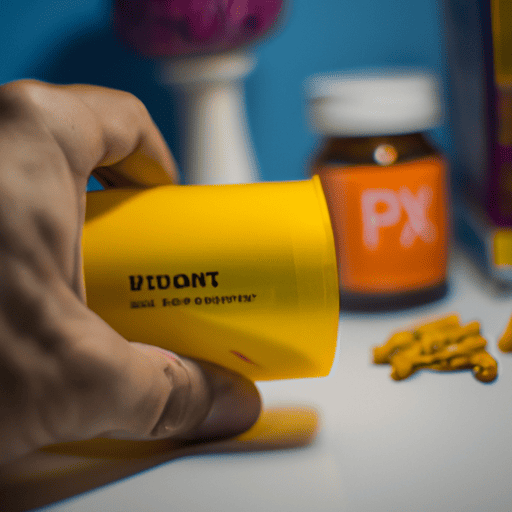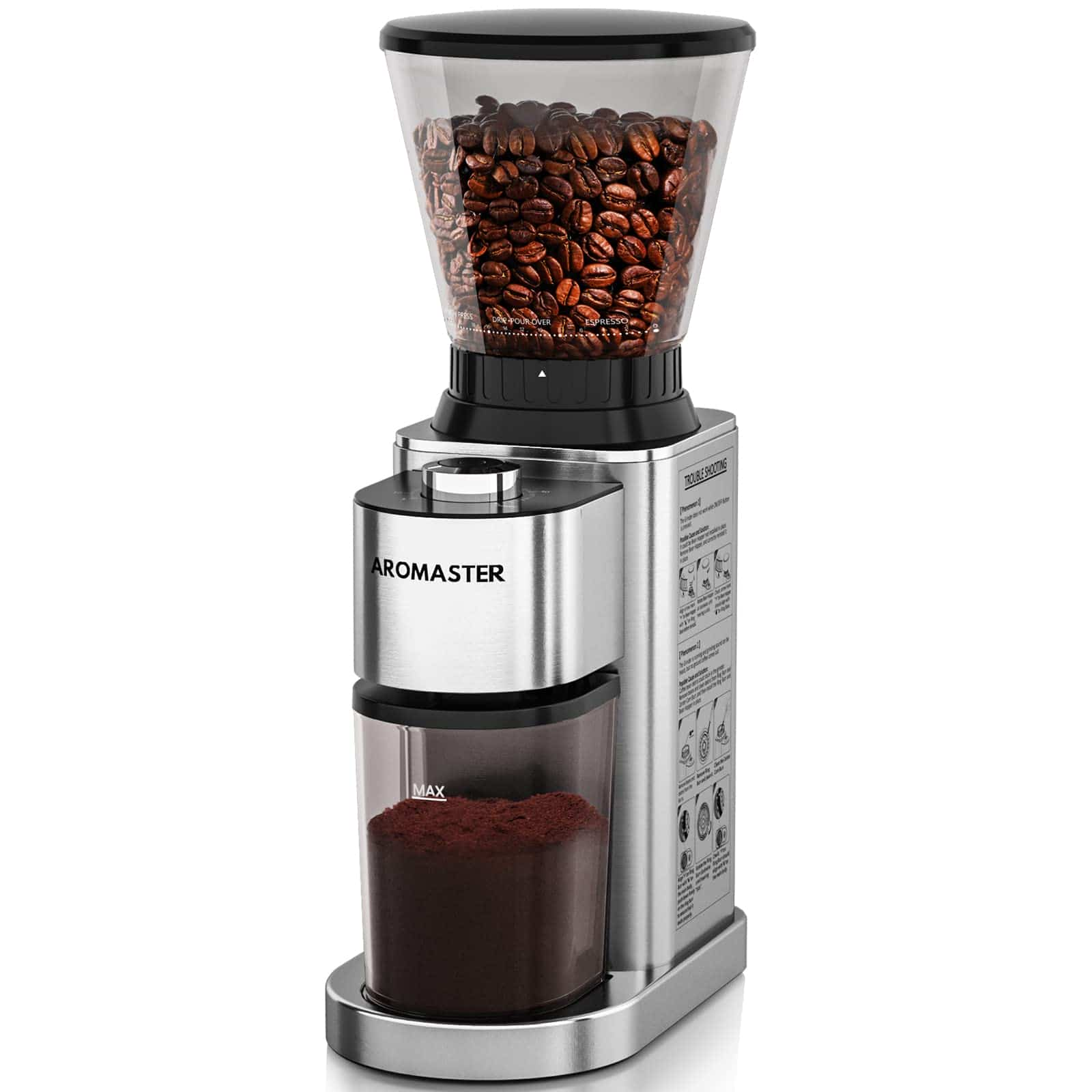Turmeric Tea
Does Turmeric Interfere With Medications

As someone who has been taking turmeric supplements for their anti-inflammatory benefits, I became curious about the potential risks of combining this natural supplement with my prescription medications.
While turmeric is generally considered safe and has been used for centuries in traditional medicine, it’s important to understand how it interacts with medications and whether there are any potential risks associated with its use.
In this article, I will explore the potential risks of combining turmeric with medications, including how it may interfere with their effectiveness and potential side effects.
I will also provide tips on how to safely incorporate turmeric into your health routine, including consulting with your healthcare provider, choosing high-quality supplements, and monitoring your symptoms.
By the end of this article, you will have a better understanding of whether turmeric is right for you and how to use it safely.
Key Takeaways
- Turmeric can interact with certain medications, such as blood thinners, diabetes medications, and cholesterol-lowering drugs, affecting their absorption and metabolism.
- Choosing high-quality turmeric supplements that have been third-party tested and certified, and contain at least 95% curcuminoids, is crucial.
- Consuming over 8 grams of turmeric per day can lead to gastrointestinal symptoms and other potential side effects such as headaches, skin rashes, and liver toxicity.
- It’s important to consult your healthcare provider before taking turmeric or any alternative supplements if you are currently taking any medications, to avoid potential health risks and understand any potential interactions.
Overview of Turmeric and Its Health Benefits
If you’re looking to improve your overall health, you might want to consider adding turmeric to your diet because it’s packed with antioxidants and has been shown to aid in reducing inflammation.
Turmeric is a root that is commonly used in South Asian cuisine and has been cultivated for thousands of years. It’s known for its bright yellow color and distinct flavor, and can be used in a variety of dishes such as curries, soups, and even smoothies.
Aside from adding flavor to your dishes, turmeric has a range of health benefits. It’s been shown to have anti-inflammatory properties, which may help with conditions such as arthritis and heart disease. Additionally, turmeric has been linked to improved brain function and reduced risk of certain types of cancer.
If you’re interested in incorporating turmeric into your diet, there are many turmeric recipes available online. However, it’s important to note that turmeric can interact with certain medications, which we’ll explore in the next section.
How Turmeric Interacts with Medications
Turmeric has been known to interact with certain drugs, such as blood thinners, potentially causing negative side effects. For example, a patient taking warfarin and turmeric supplements experienced increased bleeding after a minor injury.
To avoid potential health risks, it’s important to consider the dosage of turmeric when taking medications. It’s recommended not to exceed 500mg of turmeric per day, as higher doses may increase the chances of negative side effects.
In addition to blood thinners, turmeric may also interact with medications for diabetes, acid reflux, and cholesterol. It’s important to talk to your doctor before taking turmeric supplements if you are currently taking any medications. They will be able to assess the potential risks and benefits of combining turmeric with your medications.
In the next section, we will explore the potential risks of combining turmeric with medications in more detail.
Potential Risks of Combining Turmeric with Medications
Combining certain medications with turmeric can pose potential risks, and it’s important to understand these risks before incorporating turmeric into your supplement regimen. Turmeric has blood-thinning properties that can increase the risk of bleeding when taken with blood thinners such as aspirin, warfarin, or clopidogrel. Additionally, turmeric can interact with other common medications such as antacids, diabetes medications, and cholesterol-lowering drugs, affecting their absorption and metabolism.
To illustrate the potential risks of combining turmeric with medications, here’s a table summarizing some of the possible interactions:
| Medication | Possible Interaction with Turmeric |
|---|---|
| Blood Thinners (e.g. aspirin, warfarin, clopidogrel) | Increased risk of bleeding |
| Antacids | Reduced absorption of turmeric and the medication |
| Diabetes medications (e.g. metformin) | Reduced blood sugar levels |
| Cholesterol-lowering drugs (e.g. statins) | Reduced effectiveness of the medication |
It’s important to note that this table is not exhaustive, and there may be other medications that can interact with turmeric. If you’re considering taking turmeric supplements, it’s essential to consult your healthcare provider to discuss potential interactions and determine whether it’s safe for you to incorporate turmeric into your medication regimen.
Consult Your Healthcare Provider
Before incorporating turmeric into your supplement regimen, it’s essential to consult your healthcare provider to discuss any potential risks and determine whether it’s safe for you. While turmeric is generally safe, it can interact with certain medications, leading to adverse effects.
Your healthcare provider can help you navigate any potential risks and provide recommendations based on your individual needs. Consultation with a healthcare provider is crucial, especially if you’re taking medications or have pre-existing health conditions.
Your healthcare provider can advise you on the appropriate dosage and whether turmeric is safe to take alongside your current medications. It’s always better to err on the side of caution and seek professional advice before adding any new supplement to your routine.
With their recommendation, you can make an informed decision about incorporating turmeric into your supplement regimen or consider alternative supplements.
Consider Alternative Supplements
So, I’ve been doing some research on alternative supplements to turmeric, and I’ve come across some interesting options.
Ginger, for example, has been shown to have anti-inflammatory properties similar to turmeric.
Garlic is another supplement that has been shown to have anti-inflammatory effects and can also help with cardiovascular health.
Omega-3 fatty acids, found in fish oil supplements, have also been shown to have anti-inflammatory effects and can help with various health issues.
It’s worth considering these alternatives if you’re looking for a natural way to improve your health.
Ginger
Wow, I absolutely love ginger in my food and drinks, but did you know that consuming too much of it can have negative effects on your health if you’re taking certain medications?
Ginger is known for its anti-inflammatory and antioxidant properties, and it’s been used for centuries to treat various ailments. However, if you’re taking blood-thinning medications, such as warfarin, consuming too much ginger can increase the risk of bleeding. Additionally, ginger can interact with medications for diabetes, high blood pressure, and heart diseases, among others.
Here are some other potential negative effects of consuming too much ginger:
- Stomach upset and diarrhea
- Increased risk of bleeding
- Changes in blood sugar levels
- Interference with medications for blood pressure, heart diseases, and depression
- Allergic reactions
If you’re taking medications, it’s essential to talk to your doctor before consuming ginger tea or ginger supplements to avoid any adverse effects.
Now, let’s move on to the next subtopic about garlic.
Garlic
You might be surprised to learn that garlic, a popular ingredient in many dishes, can also have negative effects on your health if not consumed in moderation. While garlic has been touted for its numerous health benefits, including its ability to boost the immune system and lower blood pressure, studies have shown that high doses of garlic supplementation can actually increase the risk of bleeding and interfere with certain medications, such as blood thinners.
One of the most well-known benefits of garlic supplementation is its effect on cholesterol levels. Garlic has been shown to lower LDL cholesterol levels, which is the "bad"cholesterol that can increase the risk of heart disease. However, it’s important to note that these benefits are typically seen with moderate doses of garlic and may not be as effective with high doses.
As with any supplement or medication, it’s important to talk to your doctor before incorporating garlic into your diet or taking it in supplement form.
When it comes to maintaining a healthy diet, omega-3 fatty acids are an important component.
Omega-3 Fatty Acids
If you’re looking to boost heart health and improve brain function, incorporating omega-3 fatty acids into your diet is a great place to start. These essential fats aren’t produced by the body, so they must be obtained through diet or supplements.
Here are some things to keep in mind when it comes to omega-3s:
-
Sources of omega-3: You can find omega-3s in fatty fish such as salmon and tuna, as well as in flaxseeds, chia seeds, walnuts, and soybeans.
-
Omega-3 dosage recommendations: The American Heart Association recommends eating two servings of fatty fish per week to get the recommended amount of omega-3s. If you aren’t a fan of fish, you can also take supplements. The recommended dosage varies depending on the specific supplement, so it’s important to read the label and consult with a healthcare professional.
Incorporating omega-3s into your diet can have numerous health benefits, but it’s important to avoid high doses of turmeric as it can interfere with certain medications.
Avoid High Doses of Turmeric
To avoid potential interaction with medications, you should be cautious about consuming high doses of turmeric. Turmeric dosage should be monitored. One study found that consuming over 8 grams of turmeric per day can lead to gastrointestinal symptoms such as nausea and diarrhea. Other potential side effects of consuming high doses of turmeric may include headaches, skin rashes, and liver toxicity. Therefore, it’s important to speak with a healthcare provider before taking turmeric supplements or increasing your consumption of turmeric in your diet.
In addition to monitoring your turmeric dosage, it’s important to choose high-quality supplements if you decide to take turmeric in supplement form. This can help ensure that you are getting the correct dosage and that the supplement is free from harmful contaminants. When choosing a turmeric supplement, look for ones that have been third-party tested and certified. Also, look for ones that contain a standardized amount of curcumin, which is the active ingredient in turmeric.
Choose High-Quality Supplements
By selecting high-quality turmeric supplements that have been third-party tested and certified, you can ensure that you are getting a safe and effective dosage without any harmful contaminants. Choosing supplements wisely is crucial because there are many fake products in the market that can be harmful to your health. These fake products may contain harmful additives or contaminants that can interfere with your medications or cause adverse reactions. Therefore, it is important to do your research and select a reputable brand that has a good reputation for producing high-quality supplements.
To help you make an informed decision, here is a table that compares three popular turmeric supplements. As you can see, there is a significant difference in the amount of curcumin, which is the active ingredient in turmeric, and the price of each product. By choosing a high-quality supplement that contains a sufficient amount of curcumin and is free of harmful contaminants, you can reap the benefits of turmeric without any adverse effects. In the next section, we will discuss the importance of reading labels and product information to choose the right supplement for your needs.
| Brand | Amount of Curcumin per serving | Price per bottle |
|---|---|---|
| Brand A | 500mg | $20 |
| Brand B | 1000mg | $30 |
| Brand C | 1500mg | $40 |
Read Labels and Product Information
Before purchasing a turmeric supplement, it’s important to carefully read the labels and product information to ensure that you’re getting a high-quality product that’ll provide the desired benefits.
Here are four things to look for when reading the label:
- Standardization: Look for a product that contains at least 95% curcuminoids, the active compounds found in turmeric.
- Additives: Avoid supplements that contain additives, such as fillers, binders, or artificial flavors and colors.
- Source: Choose a supplement that’s made from organic turmeric root to avoid exposure to harmful pesticides and herbicides.
- Potential drug interactions: Check the label for any warnings about potential drug interactions, especially if you’re taking prescription medications.
Reading the product information can also provide valuable information about the manufacturing process and quality control standards used by the company.
By taking the time to read the labels and product information, you can ensure that you’re getting a high-quality turmeric supplement that’s safe and effective.
Transitioning into the subsequent section about monitoring symptoms, it’s important to remember that even if you choose a high-quality supplement and carefully read the label, there’s still a possibility of potential drug interactions. Therefore, it’s important to monitor your symptoms and talk to your healthcare provider if you experience any adverse effects while taking turmeric supplements.
Monitor Your Symptoms
As I take turmeric supplements to manage my inflammation, it’s important for me to monitor my symptoms.
One potential side effect of taking turmeric is an increased risk of bleeding, so I need to be vigilant for any signs of bleeding such as nosebleeds or bruising.
If I notice any changes, I should report them to my healthcare provider right away to ensure my safety and well-being.
Watch for Signs of Bleeding
Be aware of any unusual bleeding, like nosebleeds or bruising easily, when taking turmeric with your medications. Turmeric has blood-thinning properties that can interfere with your medication and increase your risk of bleeding.
Here are four signs of bleeding to watch out for when taking turmeric with your medications:
-
Unexplained bruising: If you notice bruises on your body without any apparent cause, it could be a sign of bleeding.
-
Blood in urine or stool: This could be a sign of bleeding in your digestive tract.
-
Prolonged bleeding: If you notice that cuts or wounds take longer to clot, it could be a sign of bleeding.
-
Nosebleeds: If you experience frequent nosebleeds, it could be a sign of bleeding.
It’s important to keep an eye out for these signs of bleeding, especially when taking turmeric with your medications. If you notice any of these symptoms, it’s important to report any changes to your healthcare provider.
Report Any Changes to Your Healthcare Provider
Keep an eye out for signs of bleeding when taking turmeric with your medication, and if you notice any changes, report them to your healthcare provider for proper monitoring and management. Communicating openly with your healthcare provider about any changes in your medication regimen is crucial to ensure that your health is being properly monitored. Do not self medicate or adjust your medication without consulting your healthcare provider.
To better understand the potential interactions between turmeric and medications, it is important to communicate openly with your healthcare provider. Below is a table that highlights some of the medications that may interact with turmeric. Be sure to inform your healthcare provider about any medications, supplements, or herbs you are taking to avoid any potential drug interactions. Remember, self medicating can be dangerous, so always consult with your healthcare provider before making any changes to your medication regimen.
| Medications that may interact with Turmeric | Potential Interaction | |||
|---|---|---|---|---|
| Blood-thinning medications | Increased risk of bleeding | |||
| Diabetes medications | Lowered blood sugar levels | |||
| Chemotherapy drugs | Decreased effectiveness | |||
| Immunosuppressant drugs | Decreased effectiveness | Iron supplements | Reduced absorption of iron |
Frequently Asked Questions
What are some common medications that may interact with turmeric?
I’ve found that some common medications, such as blood thinners, may interact with turmeric. It’s important to talk to your doctor before taking turmeric with any medication, as it can affect absorption and increase the risk of bleeding.
Can turmeric be safely taken with blood thinners?
Taking turmeric with blood thinners can increase the risk of bleeding. However, turmeric may help lower blood pressure and improve insulin sensitivity in diabetes. It’s important to speak with a healthcare provider before taking any supplements with medications.
Are there any known side effects of turmeric supplementation?
Potential risks of turmeric supplementation include stomach upset and allergic reactions. Contradictory research exists on its effects on the liver and blood thinning. Consult with a healthcare provider before taking turmeric supplements.
What is the recommended dosage of turmeric for optimal health benefits?
To maximize the health benefits of turmeric, I recommend incorporating it into your diet through turmeric recipes or taking turmeric supplements. The optimal dosage varies, but a common recommendation is 500-2,000 mg per day.
Can turmeric be used as a replacement for prescription medications?
Using turmeric as a replacement for prescription medications has its pros and cons. While turmeric is effective for some conditions, it may not be as effective as prescription medications for others. It is important to consult with a healthcare provider before making any changes to medication regimens.
Conclusion
So, does turmeric interfere with medications? The answer is yes, it can.
Turmeric is a powerful and natural anti-inflammatory agent that has been used for centuries to treat a range of health conditions. However, it can interact with certain medications and cause adverse effects.
It’s important to consult with your healthcare provider before adding turmeric to your supplement routine, especially if you’re taking prescription medications. Additionally, it’s important to choose high-quality supplements, read labels and product information, and monitor your symptoms.
While turmeric can offer numerous health benefits, it’s important to use it responsibly and in consultation with your healthcare provider to avoid any potential risks.
Arf, an author and an innovative enthusiast of coffee, coffee alternatives, and tea, plays a crucial role as a contributor to the esteemed Cappuccino Oracle platform. Renowned for his curiosity and passion for these captivating beverages, Arf has carved out a unique space for himself in the world of exploration and writing. He realized that coffee, coffee alternatives, and tea are not mere drinks to keep one awake, but universes of flavors and stories waiting to be explored.
Arf’s articles for Cappuccino Oracle blend meticulous research with personal experiences, providing readers with an in-depth understanding of various types of coffee, coffee alternatives, and tea, along with their unique characteristics, cultures, and histories. His honest reviews and engaging narratives guide readers on their own journeys, helping them discover their preferences and find their perfect brew.
Turmeric Tea
What Kombucha Tea Is Good for Gerd

As someone who deals with GERD, I understand the challenge of finding effective natural remedies. I was excited to find out about how **kombucha tea** could help alleviate GERD symptoms. If you want to learn more about this natural remedy, keep reading!
In this article, we’ll explore the science behind how kombucha tea can soothe GERD and offer relief. We’ll also discuss how to choose the right kombucha tea and ways to incorporate it into your GERD diet.
Get ready to brew some delicious and potentially soothing kombucha tea for your GERD!
Key Takeaways
- Kombucha tea can relieve symptoms of GERD, such as heartburn and acid reflux.
- Choosing the right kombucha tea for GERD relief involves considering soothing flavors like ginger, lemon, and chamomile, as well as low sugar and minimal added ingredients.
- Kombucha tea soothes GERD symptoms by balancing stomach acidity, reducing acid reflux, and improving digestion with its beneficial bacteria and enzymes.
- When incorporating kombucha tea into a GERD diet, it is important to monitor its effects on symptoms, consider individual responses, and take into account factors such as acidity levels, sugar content, and personal tolerance.
The Benefits of Kombucha Tea for GERD
Kombucha tea can help relieve symptoms of GERD, such as heartburn and acid reflux. The benefits of consuming kombucha tea for GERD are supported by its health effects on the digestive system.
Kombucha is a fermented beverage that contains probiotics, which are beneficial bacteria that promote gut health. These probiotics can help restore the balance of bacteria in the digestive tract, reducing symptoms of GERD.
Additionally, kombucha tea is a natural source of organic acids, such as acetic acid and gluconic acid, which can help regulate stomach acidity and prevent the excessive production of stomach acid that leads to heartburn and acid reflux.
Overall, incorporating kombucha tea into your diet can have positive effects on GERD symptoms and improve your overall digestive health.
Choosing the Right Kombucha Tea for GERD Relief
When selecting the right option, make sure to consider the flavors and ingredients that may aggravate your GERD symptoms. It’s important to find kombucha flavors that are soothing and gentle on the digestive system. Some flavors that are known to provide relief for GERD sufferers include ginger, lemon, and chamomile. These flavors have anti-inflammatory properties and can help soothe the lining of the esophagus. When looking for kombucha brands, it’s best to choose ones that are low in sugar and have a minimal amount of added ingredients. Some popular brands that cater to GERD sufferers include GT’s Living Foods, Health-Ade, and Brew Dr. Kombucha. These brands offer a variety of flavors that are suitable for individuals with GERD.
| Brand | Flavors for GERD Relief |
|---|---|
| GT’s Living Foods | Ginger, Lemon |
| Health-Ade | Ginger, Lemon |
| Brew Dr. Kombucha | Ginger, Chamomile |
| Synergy | Ginger, Lemon |
| Kevita | Lemon, Chamomile |
How Kombucha Tea Can Soothe GERD Symptoms
If you’re struggling with GERD, it’s worth exploring how kombucha can provide relief for your symptoms.
Kombucha tea is known for its many health benefits, including its potential to soothe GERD symptoms. The fermentation process of kombucha produces organic acids, such as acetic acid and gluconic acid, which can help balance the pH levels in the stomach and reduce acid reflux.
Additionally, kombucha contains beneficial bacteria and enzymes that can improve digestion and promote a healthy gut.
To make kombucha tea at home, you’ll need a SCOBY (symbiotic culture of bacteria and yeast), black or green tea, sugar, and filtered water. Simply brew the tea, add sugar, cool it down, and let the SCOBY ferment the mixture for about 7-14 days.
Enjoy your homemade kombucha tea and potentially find relief for your GERD symptoms.
Incorporating Kombucha Tea Into Your GERD Diet
To incorporate it into your GERD diet, try drinking kombucha in small amounts and monitoring how it affects your symptoms. Kombucha tea can play a role in managing GERD symptoms due to its potential beneficial effects on gut health. However, it is important to note that individual responses may vary, so it is essential to listen to your body and adjust accordingly. Here is a table outlining the potential benefits and considerations of incorporating kombucha tea into your GERD diet:
| Potential Benefits | Considerations |
|---|---|
| Probiotic properties | Acidity levels |
| Antioxidant content | Sugar content |
| Potential anti-inflammatory effects | Caffeine content |
| Improved digestion | Personal tolerance |
| Hydration | Quality and safety of the tea |
Incorporating kombucha tea into your GERD diet can be a personal choice based on your individual needs and preferences. It is always recommended to consult with a healthcare professional or registered dietitian before making any significant changes to your diet.
Tips for Brewing Kombucha Tea for GERD Relief
Brewing kombucha at home can be a cost-effective way to customize the flavors and control the ingredients for your GERD relief.
When it comes to brewing techniques, it’s important to follow proper sanitation practices to prevent contamination. Start by brewing a batch of black or green tea, then add sugar and a SCOBY (Symbiotic Culture of Bacteria and Yeast).
Fermentation typically takes around 7-14 days, but it’s essential to taste-test regularly to achieve the desired acidity. To enhance the flavor of your kombucha for GERD relief, consider incorporating ingredients like ginger or chamomile, known for their soothing properties.
Keep in mind that some flavors, like citrus or spicy ones, may trigger GERD symptoms in some individuals. Experiment with different combinations to find what works best for you.
Frequently Asked Questions
Can Kombucha Tea Completely Cure Gerd?
While kombucha tea has been praised for its potential health benefits, it is important to note that it is not a replacement for medication for GERD. Additionally, some individuals may find that kombucha exacerbates their GERD symptoms.
Can I Drink Kombucha Tea if I Am on Medication for Gerd?
Yes, you can drink kombucha tea while taking medication for GERD. However, it is important to consult with your doctor to ensure that kombucha is a suitable addition to your GERD treatment plan.
Is It Safe to Drink Kombucha Tea if I Have Other Digestive Disorders?
I wondered if it was safe to drink kombucha tea with my other digestive disorders. I researched its effects on digestive disorders and found potential risks. I’ll share what I discovered.
How Much Kombucha Tea Should I Drink Daily for GERD Relief?
For optimal GERD relief, I suggest drinking a daily dosage of kombucha tea. The best time to drink it would be before meals to aid digestion. However, consult with a healthcare professional for personalized advice.
Are There Any Potential Side Effects of Drinking Kombucha Tea for Gerd?
There are potential risks and long-term effects of drinking kombucha tea for GERD. It’s important to consider these before incorporating it into your routine.
Conclusion
In conclusion, after exploring the benefits of kombucha tea for GERD and how it can soothe symptoms, it is evident that incorporating this fermented beverage into your diet can be a valuable addition.
Just like a lighthouse guides ships safely through stormy waters, kombucha tea provides relief and support for those navigating the challenges of GERD.
By choosing the right kombucha tea and brewing it properly, individuals can experience the potential benefits and find comfort in managing their GERD symptoms.
Remember, always consult with a healthcare professional before making any significant changes to your diet.
Noah, the Editor-in-Chief at Cappuccino Oracle, plays a pivotal role in shaping the voice and vision of our renowned platform. With an unwavering passion for coffee, coffee alternatives, and tea, Noah leads Cappuccino Oracle towards new horizons in the realm of coffee journalism.
Beyond his professional responsibilities, Noah serves as a mentor and guiding force for his team. His dedication to journalistic excellence and genuine love for coffee, coffee alternatives, and tea continue to inspire and motivate the Cappuccino Oracle family. In the ever-evolving world of these beverages, Noah’s leadership ensures that our platform remains at the forefront, delivering enlightening and enjoyable content to our readers worldwide.
Turmeric Tea
What Does Kombucha Tea Do to Your Body

Curious about the effects of kombucha tea on your body? Allow me to shed some light on the topic.
This ancient fermented drink has gained popularity in recent years for its potential health benefits. From improving digestion and gut health to boosting the immune system and aiding in detoxification, kombucha tea offers a range of positive effects.
However, it’s important to be aware of potential side effects and take necessary precautions.
So, let’s dive in and explore the wonders of kombucha tea!
Key Takeaways
- Kombucha tea promotes healthy digestion and gut health by aiding in nutrient absorption, breaking down food, and restoring beneficial bacteria in the gut.
- It supports the immune system through the presence of beneficial bacteria, probiotics, antioxidants, polyphenols, and vitamins and minerals.
- Kombucha tea has detoxification properties that help neutralize free radicals, eliminate toxins, improve liver function, and promote a healthy gut microbiome.
- It is important to be aware of potential side effects and precautions, such as possible allergic reactions, contamination risks, and starting with small amounts to minimize side effects. It is also advisable to consult with a healthcare provider if you have a weakened immune system or underlying health conditions.
Health Benefits of Kombucha Tea
You’ll be pleased to know that drinking kombucha tea can provide you with numerous health benefits.
One of the most notable benefits is its potential for weight loss. Kombucha tea is low in calories and can help to suppress appetite, making it a great addition to a weight loss regimen. Additionally, kombucha tea contains acetic acid, which has been found to increase metabolism and fat burning. It also aids in digestion, promoting a healthy gut, which is essential for maintaining a healthy weight.
Another benefit of kombucha tea is its impact on skin health. The tea is rich in antioxidants, which help to protect the skin from damage caused by free radicals. It also contains probiotics, which can improve skin conditions such as acne and eczema.
Effect on Digestion and Gut Health
The fermentation in kombucha can promote healthier digestion and gut health. Kombucha is rich in digestive enzymes, which help break down food and enhance nutrient absorption. Additionally, it contains probiotic bacteria that can restore the balance of beneficial bacteria in the gut, supporting a healthy digestive system.
Kombucha can alleviate digestive issues such as bloating and gas, providing relief and improving overall comfort. The probiotics in kombucha can strengthen the intestinal barrier, reducing the risk of leaky gut syndrome and enhancing gut health. By promoting the growth of beneficial bacteria in the gut, kombucha can support a healthy microbiome and improve digestion.
These effects on digestion and gut health are crucial for maintaining overall wellness. Furthermore, the impact of kombucha on the immune system is worth exploring.
Impact on Immune System
Boosting your immune system is essential for maintaining overall health and well-being. One way to strengthen your defenses is by incorporating kombucha tea into your diet. Kombucha is a fermented tea that contains beneficial bacteria and antioxidants, which can support your immune system. Studies have shown that the probiotics found in kombucha can help improve gut health and enhance the body’s ability to fight off infections. Additionally, the antioxidants in kombucha can help reduce inflammation and oxidative stress, further supporting immune function. To emphasize the benefits of kombucha for immunity, here is a table showcasing some key components and their effects:
| Component | Effect on Immune System |
|---|---|
| Probiotics | Enhances immune response |
| Antioxidants | Reduces inflammation |
| Polyphenols | Boosts immune function |
| Vitamins and Minerals | Supports overall health |
Incorporating kombucha tea into your daily routine can be a simple and delicious way to boost your immunity and strengthen your body’s defenses.
Detoxification Properties of Kombucha Tea
Incorporating kombucha into your routine can help detoxify and cleanse your system. This fermented tea contains beneficial compounds that support the detoxification process and promote liver health. Here are three reasons why kombucha is a great addition to your detox regimen:
-
Kombucha contains antioxidants that help neutralize harmful free radicals in the body, reducing oxidative stress and supporting the natural detoxification process.
-
The organic acids present in kombucha, such as acetic acid and glucuronic acid, aid in the elimination of toxins and improve liver function.
-
Kombucha is rich in probiotics, which promote a healthy gut microbiome. A balanced gut microbiome is crucial for optimal detoxification and overall well-being.
By incorporating kombucha into your routine, you can enhance your body’s natural detoxification process and promote liver health.
However, it is important to be aware of potential side effects and take necessary precautions.
Potential Side Effects and Precautions
While kombucha can offer numerous health benefits, it’s important to be aware of potential side effects and take necessary precautions.
Although considered generally safe for most people, there are potential risks associated with consuming kombucha tea. One of the main concerns is the possibility of allergic reactions. Some individuals may be sensitive to certain components in kombucha, such as yeast or bacteria, and may experience symptoms like hives, itching, or difficulty breathing.
It’s also worth noting that homemade kombucha may carry a higher risk of contamination, leading to adverse effects. To minimize the chances of experiencing side effects, it is recommended to start with small amounts of kombucha and gradually increase the intake.
Additionally, individuals with weakened immune systems or underlying health conditions should consult with their healthcare provider before consuming kombucha.
Frequently Asked Questions
Can Kombucha Tea Help With Weight Loss?
I’ve found that kombucha tea can be helpful for weight loss. It can boost metabolism and aid in appetite control. However, it’s important to note that it should be consumed as part of a balanced diet and exercise routine.
How Often Should I Drink Kombucha Tea to Experience Its Health Benefits?
To experience the health benefits of kombucha tea, I drink it regularly. It’s important to find a balance and not overdo it. I’ve found that drinking it a few times a week works well for me.
Can Kombucha Tea Cure or Prevent Cancer?
Can kombucha tea really cure or prevent cancer? While there are no scientific studies to support this claim, kombucha tea has been known to support the immune system and improve digestive health.
Is It Safe to Consume Kombucha Tea During Pregnancy?
During pregnancy, it is important to consider the potential risks and side effects of consuming kombucha tea. It is best to consult with a healthcare professional to determine if it is safe for breastfeeding mothers.
Does Kombucha Tea Have Any Effect on Mental Health or Anxiety?
Kombucha tea can have a positive effect on mood and help reduce stress. It contains B vitamins and probiotics, which support a healthy gut-brain connection. Regular consumption may contribute to improved mental well-being.
Conclusion
In conclusion, it’s safe to say that indulging in a glass of kombucha tea every now and then can work wonders for your body.
From promoting healthy digestion and gut health to boosting your immune system, this fizzy elixir is a true gem.
Not to mention its detoxifying properties, which gently cleanse your body from within.
However, as with anything, it’s important to exercise caution and moderation.
So go ahead and enjoy the delightful benefits of kombucha tea, but remember to sip responsibly.
Noah, the Editor-in-Chief at Cappuccino Oracle, plays a pivotal role in shaping the voice and vision of our renowned platform. With an unwavering passion for coffee, coffee alternatives, and tea, Noah leads Cappuccino Oracle towards new horizons in the realm of coffee journalism.
Beyond his professional responsibilities, Noah serves as a mentor and guiding force for his team. His dedication to journalistic excellence and genuine love for coffee, coffee alternatives, and tea continue to inspire and motivate the Cappuccino Oracle family. In the ever-evolving world of these beverages, Noah’s leadership ensures that our platform remains at the forefront, delivering enlightening and enjoyable content to our readers worldwide.
Turmeric Tea
Where Did Kombucha Scoby Tea Originate

I have always been fascinated by the origins of kombucha scoby tea. As I explored its history, I unearthed a captivating journey that has unfolded over centuries and across continents.
This ancient drink, known for its probiotic properties and unique flavor, has a rich cultural significance and a deep-rooted tradition.
In this article, we will explore the historical significance, cultural roots, and traditional brewing methods of kombucha scoby tea.
So, let’s dive in and uncover the truth behind where this beloved beverage truly originated.
Key Takeaways
- Kombucha scoby tea originated in China over 2,000 years ago during the Qin Dynasty.
- It was consumed for its medicinal properties and believed to have detoxifying effects and digestive benefits.
- Kombucha has been part of different cultures’ traditions for thousands of years.
- Brewing and consuming kombucha has brought communities together and fostered a sense of connection.
The Ancient Origins of Kombucha Scoby Tea
You might be curious to know that the ancient origins of kombucha scoby tea can be traced back to China over 2,000 years ago. Kombucha, also known as ‘the tea of immortality,’ has a rich history and a reputation for its health benefits.
The origins of kombucha can be attributed to the Qin Dynasty, where it was consumed for its medicinal properties. Traditional Chinese medicine believed that kombucha had detoxifying effects and could improve digestion and overall well-being.
The unique fermentation process used to create kombucha involves a symbiotic culture of bacteria and yeast (SCOBY), which creates a fizzy, tangy, and slightly sweet beverage. This ancient elixir has been passed down through generations, transcending time and cultures, and continues to be enjoyed today for its various health benefits.
Now, let’s delve into the historical significance of kombucha scoby tea.
Historical Significance of Kombucha Scoby Tea
The historical significance of this fermented drink can be traced back to its ancient origins. Kombucha scoby tea has a rich history that spans centuries and cultures. Here are three reasons why this drink holds such importance:
-
Tradition: Kombucha has been consumed for thousands of years, with its origins believed to be in China or Russia. It has been passed down through generations, becoming a beloved part of different cultures’ traditions.
-
Health Benefits: Kombucha is known for its potential health benefits. It is rich in probiotics, which can promote gut health and digestion. It also contains antioxidants, which can help protect against oxidative stress and inflammation.
-
Community: Kombucha brewing has brought communities together for centuries. It has been shared among friends and family, fostering a sense of connection and camaraderie.
Understanding the historical origins and health benefits of kombucha scoby tea allows us to appreciate its significance in our lives today.
Cultural Roots of Kombucha Scoby Tea
Believed to have its roots in China or Russia, kombucha scoby tea has been a part of different cultures’ traditions for thousands of years. This ancient beverage has been influenced by various cultural practices, each adding their unique twist to the brewing process.
In China, kombucha is known as ‘chájūn’ and is believed to have been consumed for its health benefits. In Russia, it is called ‘chaynyy grib’ and is often associated with folklore and traditional medicine. These cultural influences have shaped the way kombucha is brewed and consumed today.
Kombucha scoby tea is celebrated for its numerous health benefits, including probiotics, antioxidants, and detoxification properties. It is believed to support digestion, boost the immune system, and improve overall gut health.
With its rich cultural heritage and health-promoting properties, kombucha scoby tea continues to be enjoyed by people worldwide.
Kombucha Scoby Tea’s Journey Across Continents
Traveling across continents, kombucha scoby tea found its way into different cultures and was embraced for its unique flavors and health benefits. People from all walks of life have come to appreciate the numerous benefits that this fermented tea offers. Here are three reasons why kombucha scoby tea has gained such popularity today:
Improved Digestion: Kombucha scoby tea contains probiotics, which promote a healthy gut by improving digestion and aiding in nutrient absorption. This can lead to reduced bloating, increased energy levels, and a strengthened immune system.
Detoxification: The tea is rich in antioxidants that help eliminate toxins from the body, supporting liver health and boosting overall detoxification processes.
Mental Well-being: Kombucha scoby tea is known to have a positive impact on mental health. Its B vitamins and amino acids can help reduce stress, improve mood, and enhance cognitive function.
Given its wide range of health benefits, it’s no wonder that kombucha scoby tea has become a popular beverage choice today. Transitioning into the next section, let’s explore the traditional brewing methods of this remarkable tea.
Traditional Brewing Methods of Kombucha Scoby Tea
To brew kombucha scoby tea traditionally, you’ll need a few basic ingredients like black or green tea, sugar, and a scoby. The traditional methods of brewing kombucha scoby tea involve a fermentation process that has been passed down for generations.
First, I start by boiling water and steeping the tea leaves for about 10 minutes. Then, I add sugar to the hot tea and stir until it dissolves completely. After the tea has cooled to room temperature, I transfer it to a glass jar and place the scoby on top. The scoby acts as a culture that will feed on the sugar and convert the tea into a tangy and fizzy beverage.
I cover the jar with a cloth and let it sit undisturbed for about a week, allowing the fermentation process to take place. During this time, the scoby consumes the sugar, producing carbon dioxide and various acids that give kombucha its unique taste.
Once the desired flavor is achieved, I strain the tea and store it in the refrigerator for a refreshing and healthy drink.
Frequently Asked Questions
What Are the Health Benefits of Drinking Kombucha Scoby Tea?
Drinking kombucha scoby tea has numerous health benefits. It boosts digestion, strengthens the immune system, detoxifies the body, and improves gut health. The brewing process involves fermenting sweet tea with a scoby, resulting in a probiotic-rich beverage.
What Are the Different Flavors of Kombucha Scoby Tea Available?
There are many flavored variations of kombucha scoby tea available, each with its own unique taste. Brewing techniques can vary, but the common goal is to ferment the tea with a symbiotic culture of bacteria and yeast (SCOBY) to create a tangy and fizzy beverage.
How Long Does It Take to Brew Kombucha Scoby Tea?
Brewing time for kombucha scoby tea varies, but it usually takes around 7-14 days. Temperature control is important during fermentation to ensure proper growth of the scoby and the desired flavor profile.
Can Kombucha Scoby Tea Be Made at Home?
Sure, you can make kombucha scoby tea at home. It’s easy and has many benefits. You’ll need a scoby, tea, sugar, and patience. Homemade kombucha scoby tea is delicious, probiotic-rich, and a great way to support gut health.
Is Kombucha Scoby Tea Suitable for People With Dietary Restrictions, Such as Vegans or Those With Gluten Intolerance?
Yes, kombucha scoby tea is suitable for people with dietary restrictions. There are vegan alternatives available and it is naturally gluten-free. It’s a great option for those looking for a healthy and flavorful beverage.
Conclusion
In conclusion, learning about the ancient origins and cultural significance of Kombucha Scoby Tea has been truly fascinating. It is incredible to think that this elixir has traveled across continents, leaving its mark on various cultures throughout history.
Just like the Scoby itself, Kombucha has a way of connecting people, bridging gaps, and fostering a sense of community. It is a reminder that even in a diverse world, we can find common ground and create something beautiful together.
So, let’s raise a glass of this delightful beverage and toast to the power of unity and the magic of Kombucha Scoby Tea. Cheers!
Justin is a seasoned author, coffee and tea enthusiast, and an essential member of the Cappuccino Oracle team. With a keen appreciation for the complexities of coffee, coffee alternatives, and tea, Justin has dedicated his professional career to exploring these realms and sharing his insights with readers worldwide.
Justin’s immersion in the world of coffee, coffee alternatives, and tea began at a young age, kindling a passion that extended beyond mere consumption. This love for these beverages led him to combine his talent for writing with his devotion to coffee and tea, bringing him to Cappuccino Oracle as a dedicated author.
-

 Espresso Machines Reviews2 weeks ago
Espresso Machines Reviews2 weeks agoDeLonghi Eletta Explore: A Comprehensive Review [2025]
-

 Espresso Machines Reviews3 weeks ago
Espresso Machines Reviews3 weeks agoILAVIE 20 Bar Espresso Machine Review (2025)
-

 Espresso Machines Reviews3 weeks ago
Espresso Machines Reviews3 weeks agoSUMSATY Espresso Machine Review (2025)
-

 Espresso Machines Reviews2 weeks ago
Espresso Machines Reviews2 weeks agoDeLonghi Magnifica S ECAM22.110.B Review: A Coffee Lover's Dream [2025]
-

 Coffee Grinders Reviews3 weeks ago
Coffee Grinders Reviews3 weeks agoAromaster Burr Coffee Grinder Review (2025)
-

 Espresso Machines Reviews3 weeks ago
Espresso Machines Reviews3 weeks agoMAttinata Espresso Machine Review (2025)
-

 Espresso Machines Reviews3 weeks ago
Espresso Machines Reviews3 weeks agoCafe Bueno Super Automatic Espresso Machine Review (2025)
-

 Cappuccino Oracle Selected Reviews2 weeks ago
Cappuccino Oracle Selected Reviews2 weeks agoBest Glass Water Bottles for Eco-Friendly Hydration [2025]





























